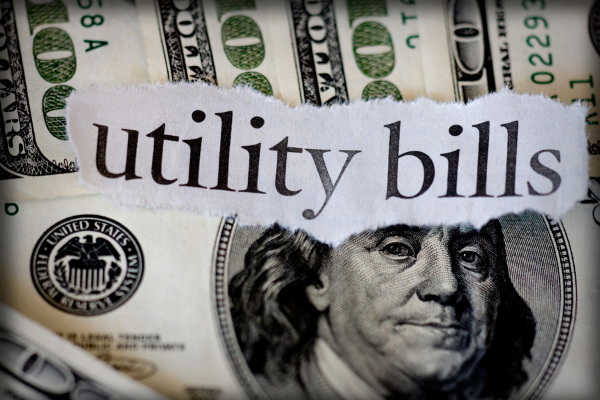OKLAHOMA CITY – State legislators and government leaders are crafting plans for a bond issue of perhaps $5 billion to provide a pool of funds that would help public utility companies, hospitals, schools, industries and small businesses pay their extraordinary natural-gas bills arising from February’s frigid weather.
The effort in the Legislature is being led by Sen. James Leewright, R-Bristow, and Rep. Garry Mize, R-Guthrie, chairman of the House Committee on Utilities.
“We’ve been working with the Governor’s office, the Attorney General’s staff, and the Corporation Commission on how to avoid surprising consumers with crippling utility bills,” Mize said.
The Oklahoma Legislature has been “working on this for a month and a half,” the lawmaker said Monday evening. “We’ve been looking at what other states have done in this area.” The concept is not new. “This has been around for perhaps 30 years, and at least 20 other states have used this concept to recover from extreme weather events, for example.”
Neighboring Arkansas, Kansas and Texas “are looking at or have passed” securitization measures, he said.
Senate Bill 588 under consideration in the Arkansas legislature this year would permit electric and gas utilities to sell “storm recovery bonds” and use the proceeds to recover expenses arising from “the extraordinary natural gas, fuel, or purchased power costs occasioned by storms.”
“We are looking at two ‘buckets’ of funds,” Mize said. One would be for regulated utilities and another for unregulated utilities and other entities, such as hospitals and schools.
Natural-gas bills incurred during the five days of subfreezing temperatures in mid-February skyrocketed, Mize said. “For OG&E, ONG, PSO and other regulated fuel providers, their costs were around $3.5 billion. And then when we looked at rural co-ops, schools and hospitals, we estimated their costs at probably another $1.5 billion.”
Furthermore, that $5 billion estimate “is probably conservative,” Mize said.
Some kind of drastic action is needed because ratepayers face anomalous utility bills soon unless some sort of regulatory relief is enacted.
For example, the natural-gas bill for Comanche County Memorial Hospital in Lawton for the month of February was “around $400,000,” CEO Brent Smith said Monday. In comparison, he said, the hospital’s gas bill for all of last year was about $210,000.
“We can’t increase our prices, pass the expense along to the consumer and move on down the highway, because our reimbursements are scheduled,” Smith said. “And when we have patients in the hospital and in the ER, the community depends on us to provide health care.”
The Fort Cobb Fuel Authority based at Eakly logged $550,000 in additional natural gas purchase costs in February, Oklahoma City attorney Ron Comingdeer told the Corporation Commission recently. A typical FCFA bill for gas buys in February is approximately $200,000 to $250,000, Comingdeer told the Ledger. The company has had to borrow money just to be able to pay the February gas bill, which soared to about three-quarters of a million dollars.
Large companies can afford to secure short-term financing to weather the high February utility bills, but many Oklahomans don’t have that option, Mize said.
"We’re trying to prevent an economic shock,” he said. Otherwise, many residential customers and small-business owners face utility bills that are several hundred to several thousand dollars higher than normal.
Under the plan being developed by the Legislature, the State of Oklahoma would lend its name and credit rating to the bonds, Mize indicated, which should result in a lower interest rate for borrowers. However, Oklahoma taxpayers would not be liable for the debts in the event a borrower defaulted. “We have to create a narrow pathway for this,” he said.
Also, the Legislature probably will impose a short timeline on the repayment schedule for the bonds, Mize said. “Carrying $5 billion for 10 years would add another $1 billion in debt, and that’s unacceptable.”
Additional relief could be provided if the state receives federal aid to help offset a portion of the abnormal gas bills, Mize said. Supporters of the Legislature’s proposal also are considering some method to “incentivize” local banks to lend funds to Oklahoma residents and small companies, on reasonable terms, to help them cope with their utility bills, he said.
“We have language that will be introduced soon in a bill,” Mize said, and the Legislature intends to schedule hearings at some point “to determine how we can avoid this sort of crisis from happening again.”


